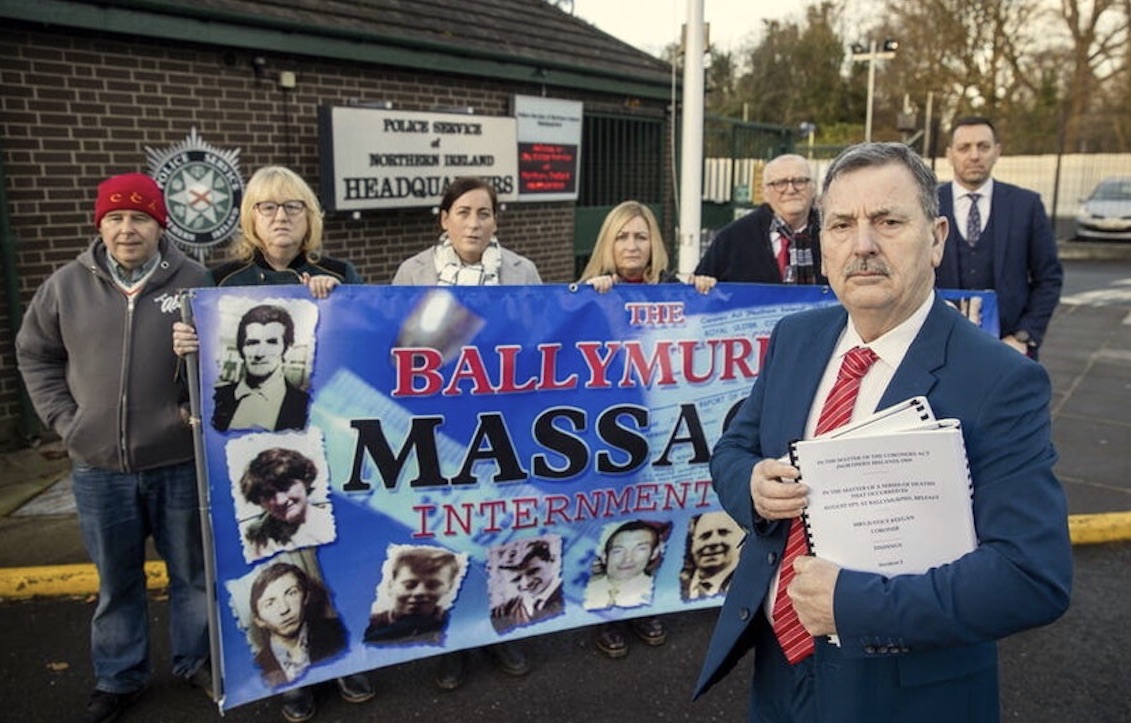
The families of the Ballymurphy massacre victims have held their first meeting with the police (RUC or PSNI) in an attempt to have a murder investigation opened.
The meeting comes after a fresh inquest into the deaths in August 1971 recently concluded that all ten were innocent victims.
The British Army was found to be responsible for nine of the 10 deaths, with not enough evidence to determine who fired the shot which killed the tenth victim. The families of the victims now want to see a murder inquiry opened.
John Teggart, whose father Danny was among the ten killed in 1971, said the murders must be investigated.
He described an “intense meeting” during which each of the families explained how the murder of their loved ones has affected them.
“We had never met with police, either the PSNI or RUC, at any stage, so this is the first contact the families have had with police,” he said.
“We explained to Mr Todd that after the inquest findings, that all our loved ones were innocent, the crime of murder needs to be investigated.
“It’s just the first meeting so we set out what our intentions are and what we expect from police, their responsibilities to the community.
“We will make a submission and we will be back.
“We told police their job will be made easy because the work is done, the documents are here, the evidence is there and the witnesses are there and contactable.
“Now we need to see a murder investigation kickstarted.”
Mr Teggart said it had been a good day for the families, and that they feel hopeful for the new year.
“There are a lot of legacy cases and we respect that, we’re no different to anybody else, everyone deserves an investigation, including ourselves,” he added.
Some thirteen other conflict-related inquests are due to start over the next four months, including several in which the British Army has been implicated in murders.
However, proposed legislation to halt investigations into conflict-related killings, including British war crimes, is still proceeding at Westminster and is unlikely to be withdrawn, according to comments this week by British Direct Rule minister Jonathan Caine.
The north’s victims’ commissioner Ian Jeffers has said he is “genuinely worried” that the controversial Legacy Bill will be forced into law without thought for those who suffered during the conflict, after it was insisted the legislation will pass.
Sinn Féin’s Gerry Kelly also criticised Caine’s renewed rejection of calls to scrap the legislation, calling the proposals “cruel, callous, and offensive”.
“The British government continues to set its face against putting the needs of victims at the heart of any legislation to tackle the legacy of the past,” he said, adding that they “should stop treating victims and their families with contempt and implement the legacy mechanisms agreed at Stormont House in a human rights compliant manner”.
![[Irish Republican News]](https://republican-news.org/graphics/title_gifs/rn.gif)
![[Irish Republican News]](https://republican-news.org/graphics/title_gifs/harp.gif)

